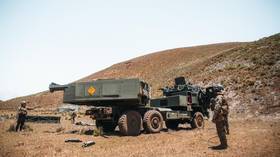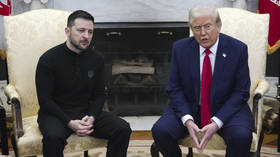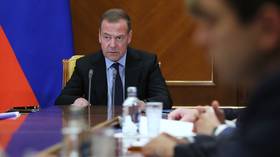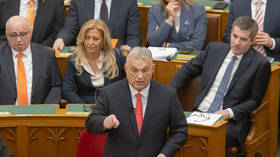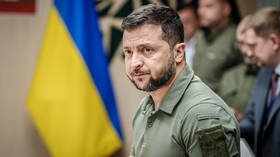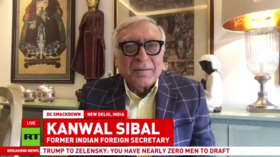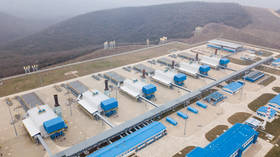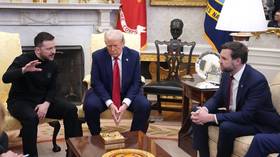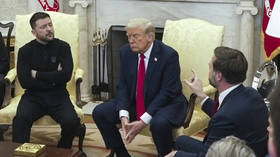Russia responds to Macron’s security guarantees offer
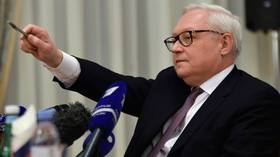
The subject of security guarantees can be raised again if the West is serious about it, Russian Deputy Foreign Minister Sergey Ryabkov told reporters on Tuesday. Until then, he added, Moscow will continue to respond appropriately to any further NATO expansion.
Talks could begin “when they confirm that they are ready for some kind of more sensible and balanced dialogue in terms of interests,” Ryabkov said.
“If and when we hear that the West really has an interest in this, we will return to the topic,” the diplomat added. “But, as in the situation with the dialogue on strategic stability, which was unilaterally interrupted by the United States, we are not chasing anyone and we are not asking anyone for anything.”
His comments came after French President Emmanuel Macron said on Saturday – fresh from a visit to Washington – that NATO should be prepared to offer Russia security guarantees as part of any upcoming talks on ending the conflict in Ukraine.
Russia sent a set of security proposals to NATO and the US in December 2021, with Ryabkov playing a key role in the talks. Among other things, Moscow demanded the withdrawal of NATO’s offensive weapons from its borders and guarantees that Ukraine would never join the bloc.
In January, the US and NATO refused, saying they would only be interested in strategic arms control talks. Since the conflict in Ukraine escalated in February, the bloc has also moved to expand to Sweden and Finland.
Ryabkov said this would receive a “corresponding response” from Russia. “Do the countries who wish to join NATO need that? Why? This is ultimately a question for them to address. We will draw conclusions for ourselves, as we have done so far.”
The “strategic stability” Ryabkov mentioned was a reference to the abortive talks between Russia and the US in Cairo last month, dealing with an impasse over New START. Moscow suspended its participation in the treaty inspections mechanism in August, saying the US sanctions gave Washington an unfair advantage by preventing Russian inspectors from doing their work. Further talks on the treaty are not possible so long as the US continues arming Ukraine, Foreign Ministry spokeswoman Maria Zakharova said last month.
